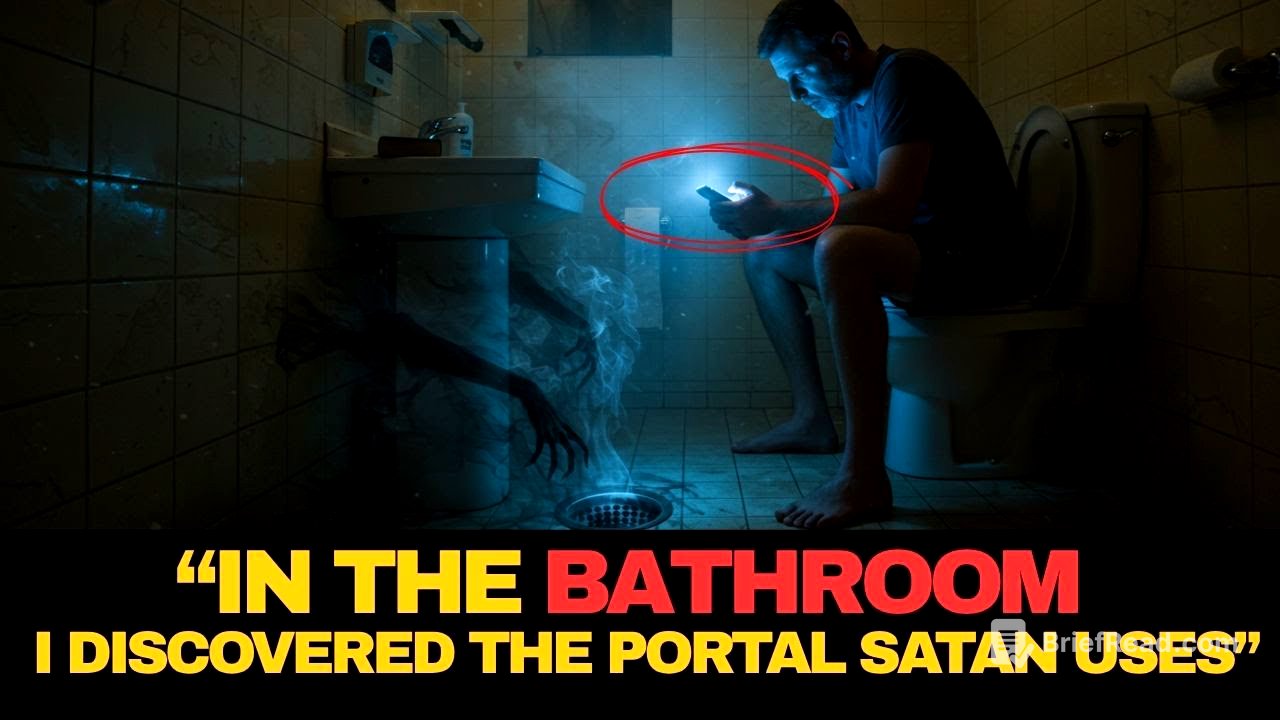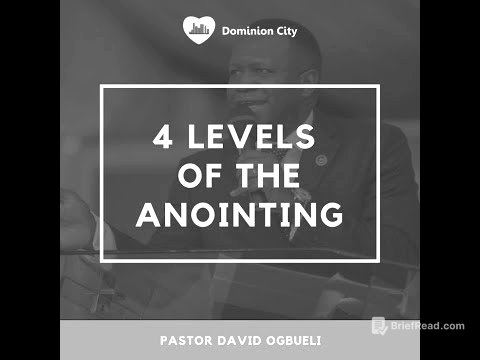TLDR;
Juber Sipelli, a former spiritual consultant, medium, and sorcerer, shares his testimony of being freed by Jesus Christ and reveals how seemingly harmless habits in the bathroom can create spiritual breaches. He identifies four key areas of concern: consuming impure content on phones, singing carnal songs, neglecting gratitude, and treating the body with negligence. Sipelli provides practical steps to transform the bathroom into a place of worship and reverence, emphasising the importance of holiness in every aspect of life to protect against spiritual attacks.
- The bathroom, often overlooked, can become a portal for spiritual attacks due to carelessness.
- Four key breaches include phone usage with impure content, singing worldly songs, lack of gratitude, and body negligence.
- Transforming the bathroom into a place of worship and practicing reverence can close these spiritual gaps.
Introduction [0:02]
Juber Sipelli introduces his background as a former spiritual consultant, medium, and sorcerer initiated into darkness at 14. He explains that he served the kingdom of darkness for almost three decades before Jesus Christ rescued him in 2018. Sipelli highlights that the enemy exploits carelessness, particularly in the bathroom, to gain access to people's lives. He aims to reveal four common but harmful attitudes in the bathroom that create spiritual breaches, which can lead to Christians living defeated lives despite their religious practices.
The First Breach: Phone Usage and Impure Content [2:55]
Sipelli identifies the first breach as taking mobile phones into the bathroom and consuming impure content. He references Matthew 6:22, explaining that the eyes are the lamp of the body, and when they feed on darkness, the entire body becomes contaminated. He shares that in the occult, controlling what people saw was a key strategy. The bathroom is a perfect place for this because people are often alone and unmonitored. Even a brief look at sensual images or exposed bodies can open a spiritual window, leading to agitation and anxiety. He advises leaving phones outside the bathroom to maintain a space of holiness.
The Second Breach: Singing Carnal Songs [5:32]
The second breach involves singing, whistling, or murmuring carnal songs in the bathroom. Sipelli quotes Ephesians 4:29, emphasising the importance of wholesome talk. He explains that words spoken in vulnerable environments have multiplied power, and the bathroom is often a spiritually neutral space available for occupation. Cursed words deposited through songs and invocations can affect those who unknowingly sing worldly songs, leading to an agitated mind and a desire to avoid prayer. He suggests transforming the bathroom into a place of worship by singing hymns and declaring the word of God.
The Third Breach: Lack of Gratitude [8:22]
Sipelli identifies the third breach as the lack of gratitude when entering and leaving the bathroom. He references 1 Thessalonians 5:18, which commands giving thanks in all circumstances. He shares that ingratitude opens a door for curses, and a lack of reverence communicates that one considers basic bodily functions as common, removing the protection of the sacred. This can lead to unexplained diseases and infections. He advises changing one's posture by expressing gratitude for life, a functioning body, and health when entering and leaving the bathroom.
The Fourth Breach: Negligence and Exhibitionism [11:27]
The fourth breach involves treating the body with negligence, carnal vanity, or exhibitionism, even when alone. Sipelli references 1 Corinthians 6:19-20, stating that bodies are temples of the Holy Spirit and should be honoured. He explains the principle of spiritual exposure, where exposing the body without reverence makes one vulnerable to invisible attacks. Admiring or judging oneself in the mirror and entertaining impure thoughts can lead to oppression and a fixation on appearance. He advises treating the body with reverence, praying for purity, and rebuking impure thoughts.
Juber's Testimony and Redemption [14:50]
Sipelli shares his personal experience of spiritual collapse in 2017, despite being at the peak of his occult career. His body began to fail, and in desperation, he cried out to Jesus on the bathroom floor. He explains that God redeemed even the most profaned places, and the bathroom became an altar of encounter with God. Today, he uses the bathroom as a practice of reverence, praying and giving thanks, which has stabilised his spiritual life and restored his family.
Holiness and Consecration [16:32]
Sipelli emphasises that holiness is not a religious code but a total consecration that permeates every aspect of life. He clarifies that consecration is recognising that every inch of one's life belongs to God, not just during religious services but in all mundane moments. He warns that where God doesn't govern, another governs, and leaving the bathroom outside one's prayer life hands over territory to the enemy.
The Thief's Tactics [18:24]
Sipelli explains that the enemy operates stealthily through gaps and security failures, not in big decisions but in small carelessnesses. He highlights that three witnesses are always present: God, oneself, and the enemy. Holiness is about integrity, being the same in all aspects of life, and bringing God's presence into all spaces, including the most mundane ones.
Practical Changes to Close the Gaps [21:32]
Sipelli provides practical steps to close the four spiritual gaps. These include leaving the phone outside the bathroom or putting it on "do not disturb" mode, murmuring psalms or singing hymns instead of worldly songs, expressing gratitude when entering and leaving the bathroom, and treating the body with reverence by avoiding vanity and impure thoughts.
Consecrating the Bathroom [25:18]
Sipelli advises consecrating the bathroom by anointing the doors, corners, mirror, toilet, and shower with consecrated oil while declaring that the space belongs to the Lord Jesus Christ. He guarantees that closing these gaps will measurably change one's life, stabilising the mind, strengthening the family, and deepening spirituality.
Signs of Spiritual Attack [26:40]
Sipelli identifies several signs of silent spiritual attack, including impure thoughts, unexplainable anxiety, insomnia and nightmares, constant conflicts at home, a sensation of spiritual weight, and physical illnesses without diagnosis. He explains that these issues often stem from open gaps in unexpected places like the bathroom.
The Call to Integral Holiness [33:19]
Sipelli concludes by calling viewers to a life of integral holiness, not just in public but in secret, where the greatest victories or defeats are defined. He urges viewers to address any resonating signs of spiritual attack by consecrating their bathrooms, praying, changing habits, and bringing reverence to these spaces. He encourages viewers to share the message and support the ministry to help others find liberation.









